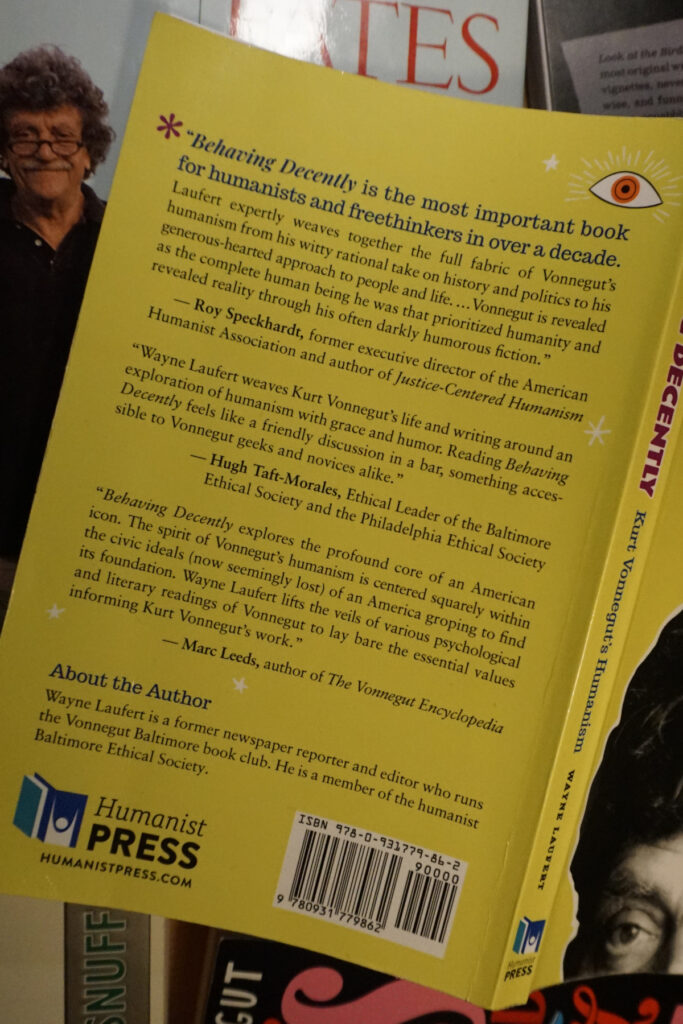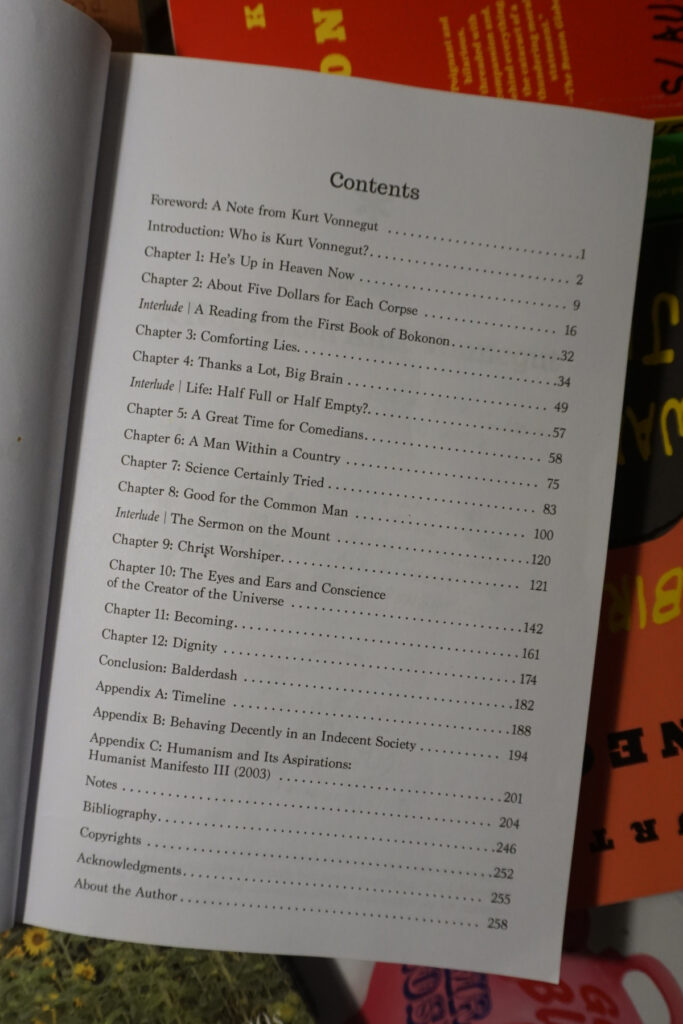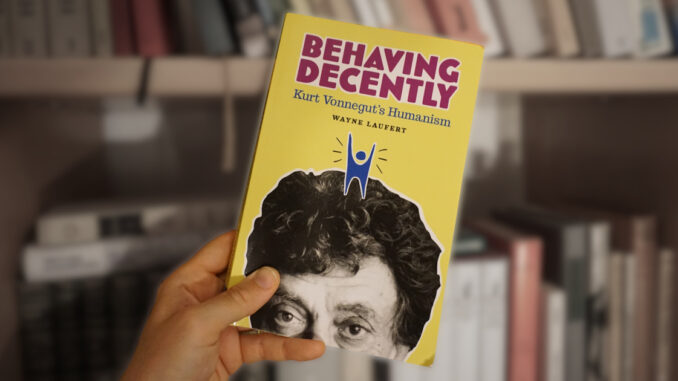
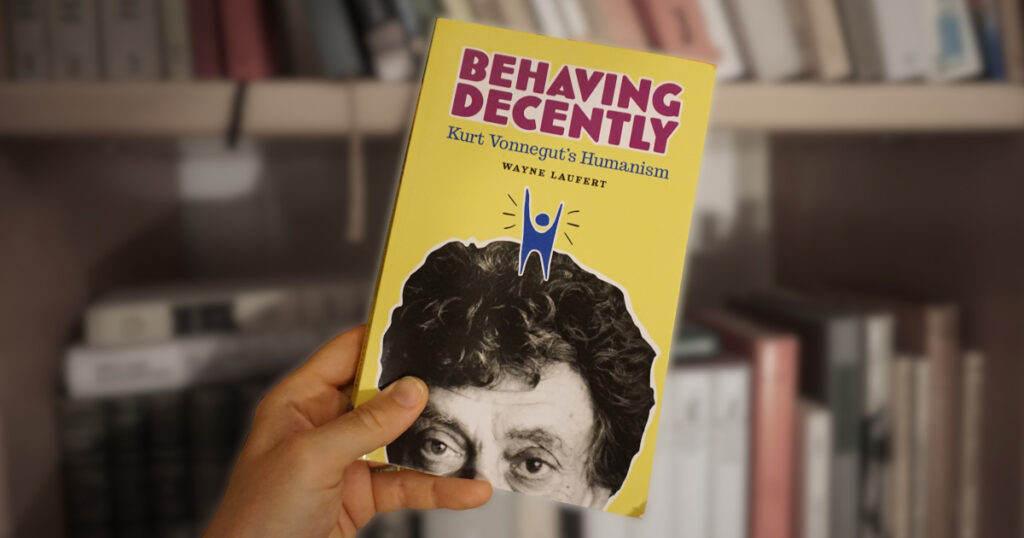
This non-fiction book by US-American writer Wayne Laufert offers in-depth research and timeless insights for experienced readers who want to deepen their knowledge about Kurt Vonnegut (1922 – 2007) and humanist ideals.
Wayne Laufert’s book (Humanist Press, 2022) is about the interplay of the terms that gave the book its title. “Those familiar with humanism,” explains Laufert when asked, “might have encountered Vonnegut’s name and be intrigued to find out whether his worldview matches their own and whether they can learn anything from it.”
Why Behaving Decently?
“Behaving decently” means thoughtfullness, modesty and a sincere niceness without being moralized by apodictic rules. This is the bridge to humanism, which is based on an ethic that encourages people to treat fellow beings and the environment with consideration and compassion. Kurt Vonnegut (1922 – 2007) held this thought dear. He was also one of the most influential American fiction writers of the last century, which gave Wayne Laufert a reason to trace humanism in the works and in the life of Kurt Vonnegut.
More Than A Collection Of Quotes
“The book,” says Laufert about the time when he started writing, “it seemed to me, should do more than collect quotes, even well-explained ones, as fun and useful as that would be. Instead, it should explore topics that Vonnegut wrote about and that typically interest humanists: war, religion, science, technology, and on and on. The biographical part would take care of itself, because Vonnegut used so much of his personal experience in his fiction.”
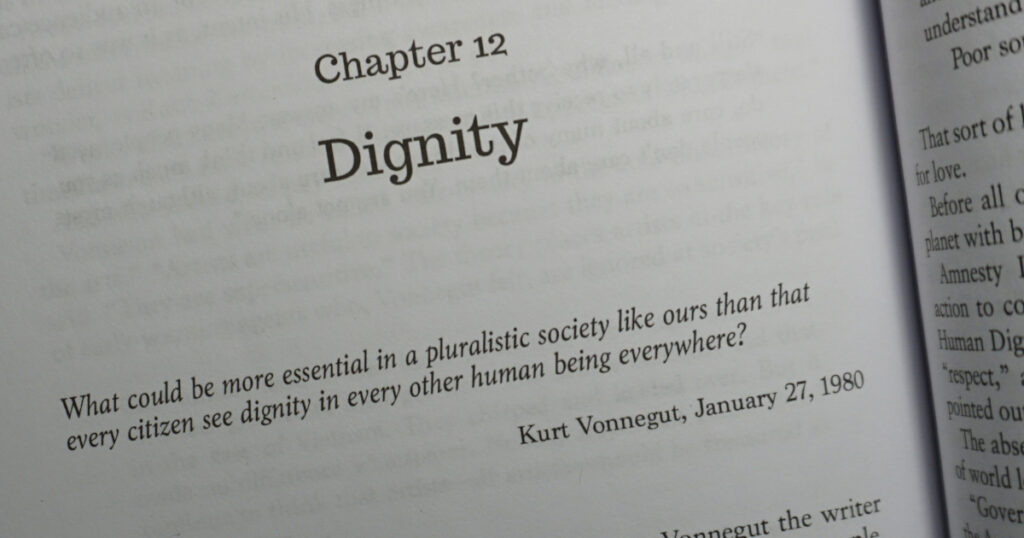
Vonnegut Is Relevant For Germans And Europeans
Kurt Vonnegut has published a total of 14 novels. In Germany, he is best known for his work “Slaughterhouse-Five”. The book is one of the most important English-language novels of the last 150 years. Here, Vonnegut deals with the Allied bombing of Dresden, which he survived as a 22-year-old POW in the basement of a slaughterhouse. Vonnegut, who then had to recover corpses of Dresdeners, describes the death of Dresden as a “bitter tragedy, needlessly and willfully excecuted.”
How Wayne Laufert Writes
Laufert contrasts these and other descriptions by Vonnegut with statements made by the author at various stages of his life. With regard to Dresden, Vonnegut sometimes appeared cynical and indifferent too. The war, the extent of destruction, the Holocaust perpetrated by the Germans and also the dropping of atomic bombs on Hiroshima and Nagasaki by the US are events to which Vonnegut ultimately responded with birds twittering “Poo-tee-weet?” in his novel “Slaughterhouse-Five”.
“Poo-tee-weet is a question without an adequate answer,” writes Laufert in his book. Laufert then evaluates Vonnegut’s statements by building a bridge to humanist ethics. In relation to Dresden, the questions are whether a war can be just or whether a massacre by one side can justify a massacre by others. Considering the current situation in the world, these issues are more relevant today than we would like them to be. Vonnegut in his time, but also humanist ethics at all times, struggle with these questions. Wayne Laufert supports answering them with his comprehensive research.
Evolution, Art And Community
Laufert explores even more topics that revolve around Vonnegut and humanism. These are attached to Vonnegut’s novels too: “Galapagos” deals with man-made disasters and evolution; “Cat’s Cradle” explores the history of religion itself and the responsibility of science. Vonnegut’s “Mother Night” is again of particular interest for Germans. It is a work that raises the question of guilt and responsibility in the face of Nazi crimes: “We are what we pretend to be, so we must be careful what we pretend to be.”
On other occasions, Vonnegut promoted art as a means of personal growth. He talked about the importance of commuities and extended families. Above all, Vonnegut was a man with an individual and sometimes dark sense of humor, which adds to the charm of his persona and to many of his books.

Wayne Laufert traces the meaning of Vonnegut’s fiction on the basis of facts, providing timeless insights for our lives today.
About Wayne Laufert
Wayne Laufert is a former newspaper reporter and editor who lives in Balitmore, Maryland, USA. Now, he works as a proofreader for the US government. Laufert joined the Vonnegut Baltimore book club in 2011. These days, he runs the club that begins its 15th season in September 2024. He has been a member of the Baltimore Ethical Society since 2013.
About His Book
“Behaving Decently – Kurt Vonnegut’s Humanism” was published by Humanist Press in 2022. The paperback edition has some 260 pages, costs $20 and can be ordered in Germany on Amazon.com for instance.

